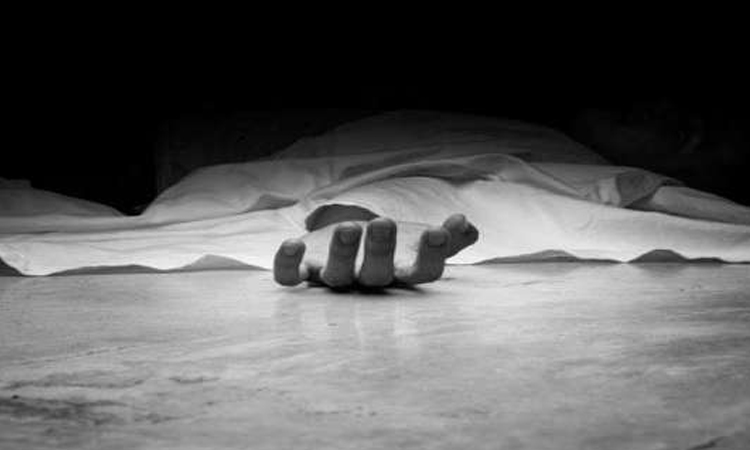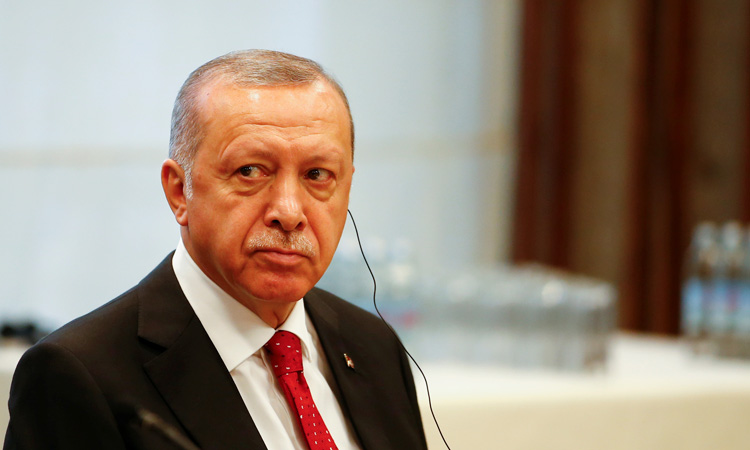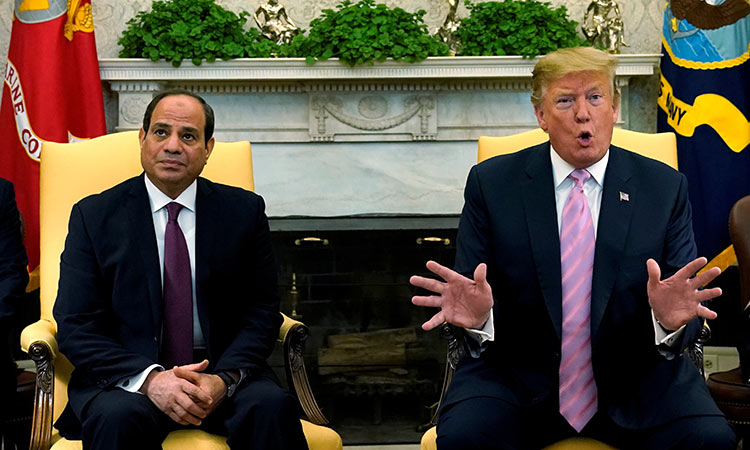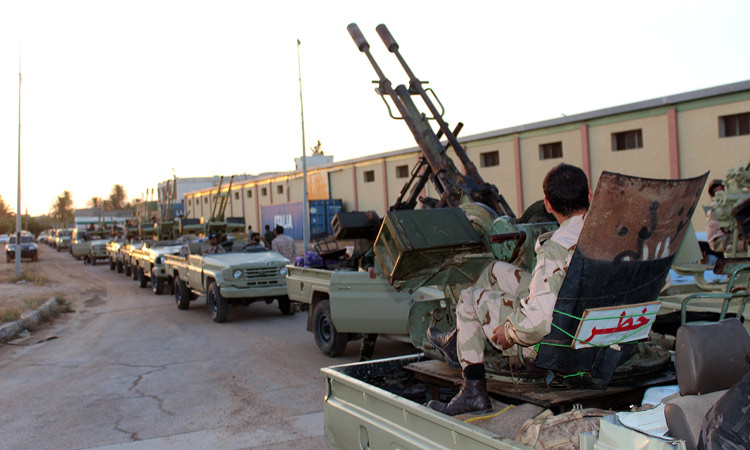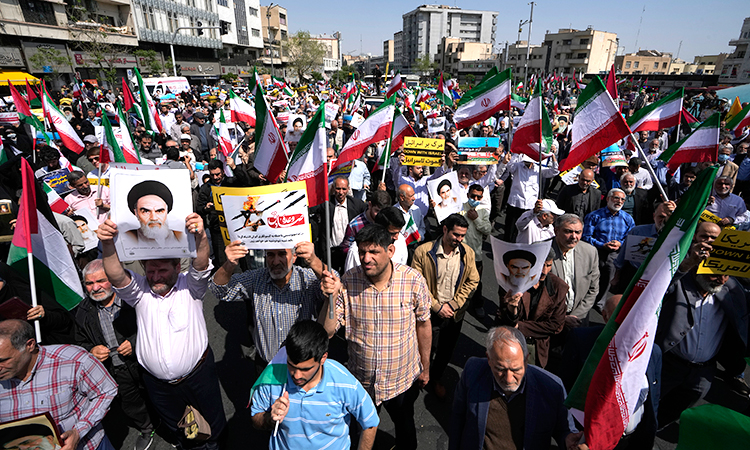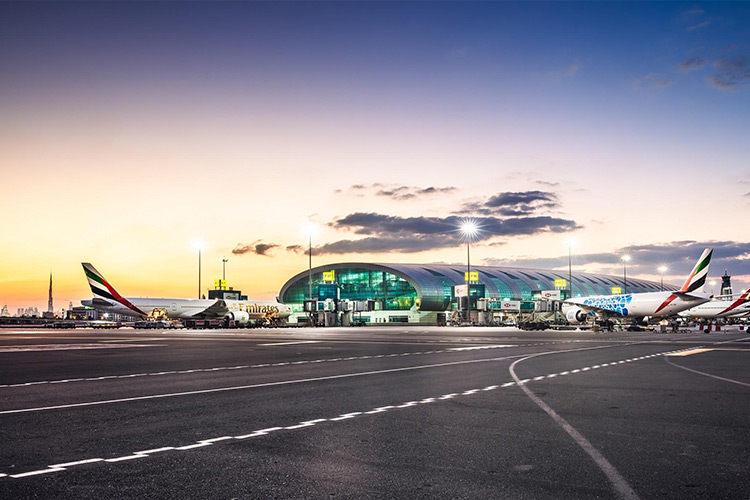East Libyan warplanes hit Tripoli government positions
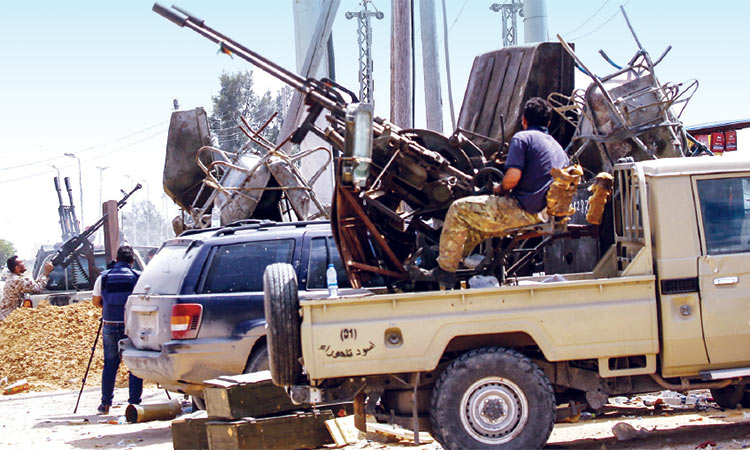
Fighters man in pickup stationed at a position held by forces loyal to GNA in the suburb of Wadi Rabie about 30 kilometres south of the capital Tripoli. Agence France-Presse
The Libyan National Army (LNA) force of Khalifa Haftar advanced on the coastal city of about 1.2 million people a week ago in the latest conflict of a cycle of anarchy since the 2011 overthrow of dictator Muammer Qadhafi.
But armed groups loyal to Prime Minister Fayez al-Serraj’s internationally-recognised government have so far kept them at bay, with fierce fighting round a disused former airport about 11 km (7 miles) from the centre.
On Friday, an LNA warplane bombed the camp of a force allied to Serraj in Zuwara, west of Tripoli towards the Tunisian border, an LNA military source and residents said.
Zuwara is near the Mellitah oil and gas plant, jointly operated by Italy’s ENI and state oil firm NOC, which supplies Italy with gas through the Greenstream pipeline.
An LNA warplane also attacked the only partly-functioning airport in Tripoli, Mitiga, where anti-aircraft opened fire in response, witnesses said. The extent of damage and possible casualties in both places was not clear.
A week of battles has killed 75 people - mainly fighters but also 17 civilians - and wounded another 323, according to latest U.N. tallies. Some 9,500 people have also been forced out of their homes.
As the sound of fighting echoed round their city, residents sought to maintain some normality on Friday.
Some families were eating in cafes next to the fish market where people were stocking up for the weekend.
“We have got used to wars. I fear only in God,” said Yamim Ahmed, 20, who works in a fast food restaurant.
As well as the humanitarian cost, the conflict threatens to disrupt oil supplies, increase migration across the Mediterranean to Europe, scupper a UN peace plan, and allow hardliner militants to exploit the chaos.
Haftar, 75, a former general in Qadhafi’s army who later joined the revolt against him, moved his troops out of their eastern stronghold to take the oil-rich, desert south earlier this year, before sweeping up to Tripoli at the start of April.
But Serraj’s government has managed to halt the advance, helped by armed groups with machine-guns on pickups and steel containers across the road into Tripoli. The Tripoli government says it has taken nearly 200 prisoners from Haftar’s army.
The United Nations, which had hoped to organise a national conference this month bringing the rival eastern and western administrations together to organise an election, has called for a ceasefire. The United States, G7 bloc of wealthy nations and European Union have also urged the LNA to halt its offensive.
The U.N. health agency said it fears outbreaks of tuberculosis, measles and diarrhoea due to poor sanitation, especially among those displaced.
Five ambulances have been hit trying to extract wounded people from the conflict zone, World Health Organisation (WHO) representative Dr Syed Jaffar Hussain also told a Geneva news briefing from Tripoli.
The WHO said it had only two weeks of medical supplies available for Tripoli’s hospitals.
Haftar casts himself as a bulwark against militancy who wants to restore order to Libya. But opponents see him as a potential would-be new dictator like Qadhafi.
He has so far resisted UN pressure to accept a power-sharing settlement, using his leverage as an ally of the West in attempts to stem extremists in North Africa.
Thousands of migrants, mainly Syrians and other Africans, are trapped in squalid detention centres in Tripoli as the fighting approaches.
Libya is a major transit point for migrants pouring into Europe in recent years, mostly trafficked by smuggling gangs.
“There are reports that some in detention centres have not eaten in days,” tweeted aid agency Medecins Sans Frontieres (Doctors Without Borders).
ife might look normal in most of the Libyan capital Tripoli - but with artillery blasts audible in much of the city as eastern LNA forces attack its southern fringe, there is tension everywhere.
Agencies
